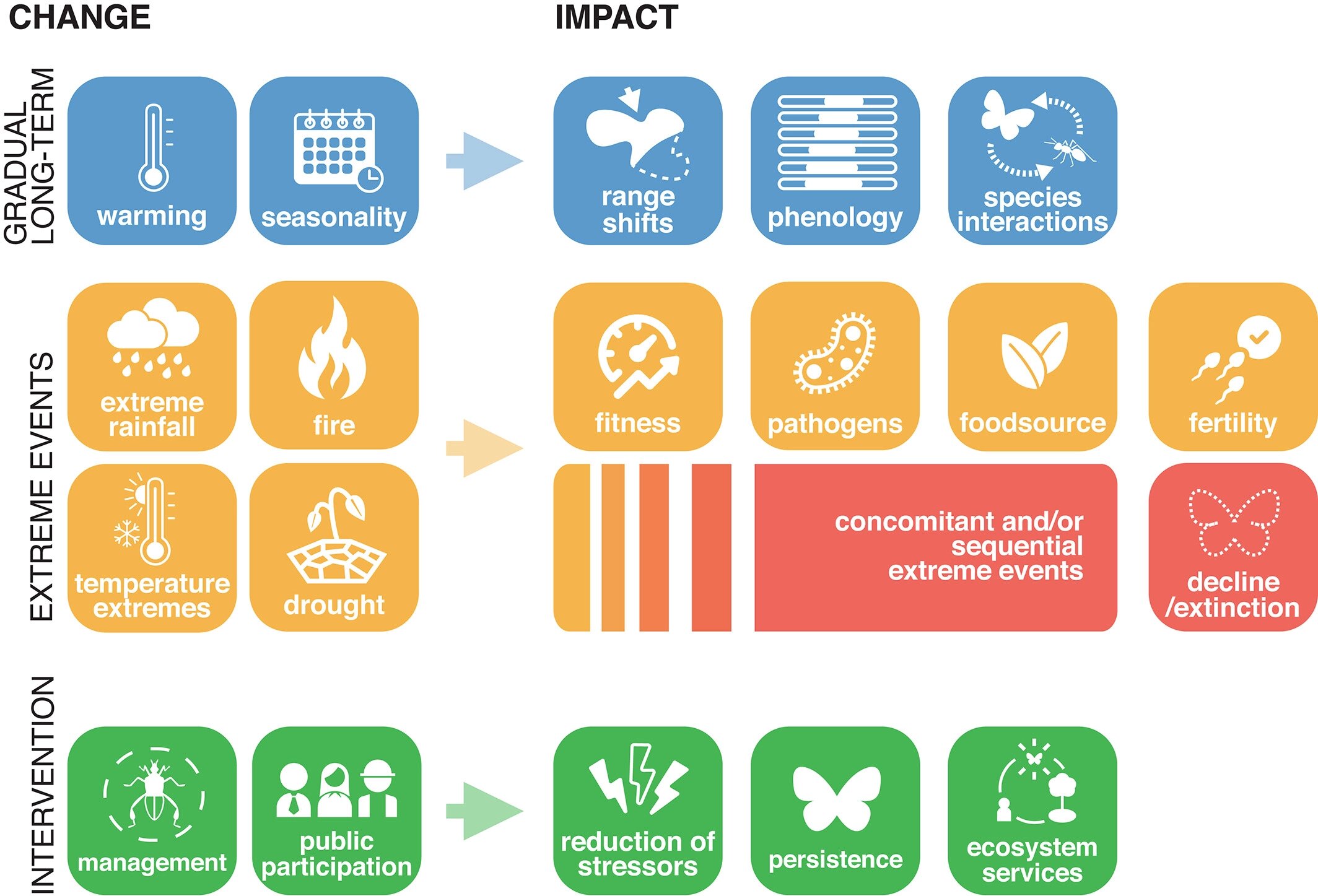Climate Change & Health
#CC&H
Climate change poses a significant threat to human health through both direct and indirect pathways, including extreme weather events, deteriorating air quality, the spread of vector-borne diseases and the psychological toll on mental health. The stress and anxiety associated with extreme weather events, displacement, and the destruction of homes and livelihoods can lead to severe mental health consequences, including depression and anxiety.
Vulnerable populations, including children, the elderly, and low-income communities, face heightened risks. Addressing these health impacts necessitates robust mitigation efforts to reduce greenhouse gas emissions and comprehensive adaptation strategies to strengthen healthcare infrastructure and resilience. International and local initiatives are crucial in developing effective responses to safeguard public health in a changing climate.

DIRECT HEALTH IMPACTS
1. Extreme Weather Events: Increased frequency and intensity of extreme weather events such as heatwaves, storms, floods, and wildfires directly threaten human health. For example, heatwaves can cause heat exhaustion, heatstroke, and exacerbate pre-existing health conditions, particularly in vulnerable populations such as the elderly and those with chronic illnesses.
2. Air Quality: Higher temperatures and changes in weather patterns can worsen air quality by increasing the concentration of ground-level ozone and particulate matter. Poor air quality exacerbates respiratory conditions such as asthma and can lead to cardiovascular diseases.
INDIRECT HEALTH IMPACTS
1. Vector-Borne Diseases: Changes in temperature and precipitation patterns can expand the habitats of vectors such as mosquitoes and ticks, leading to the spread of diseases like malaria, dengue fever, Zika virus, and Lyme disease into new regions.
2. Water and Food Security: Climate change affects the availability and quality of water and food. Droughts and altered precipitation patterns can reduce water supply and agricultural yields, leading to malnutrition and food insecurity. Floods and warming temperatures can contaminate water sources, increasing the risk of waterborne diseases such as cholera.
3. Mental Health: The stress and anxiety associated with extreme weather events, displacement, and the destruction of homes and livelihoods can have severe mental health consequences. Chronic stress from prolonged exposure to climate-related events can lead to depression, anxiety, and other mental health disorders.
VULNERABLE POPULATIONS
Certain populations are more vulnerable to the health impacts of climate change, including:
- Children: More susceptible to heat stress, respiratory diseases, and the long-term impacts of poor nutrition
- Elderly: Higher risk of heat-related illnesses and complications from existing health conditions
- Low-Income Communities: Often have less access to healthcare and resources to adapt to changing conditions.
- Indigenous Peoples: Dependent on local ecosystems for their livelihoods, facing greater risks from changes in their environments.
